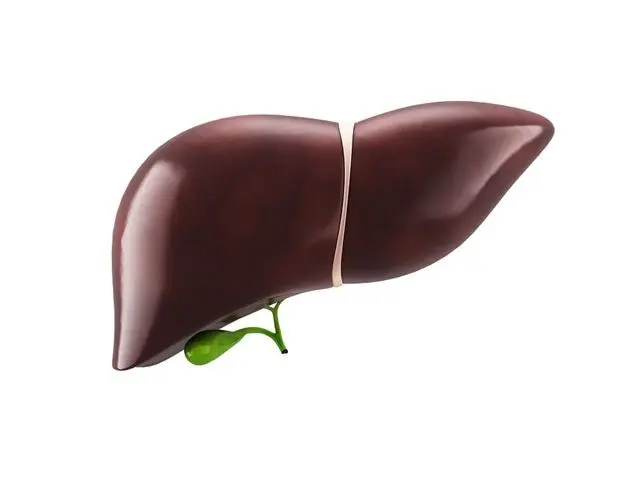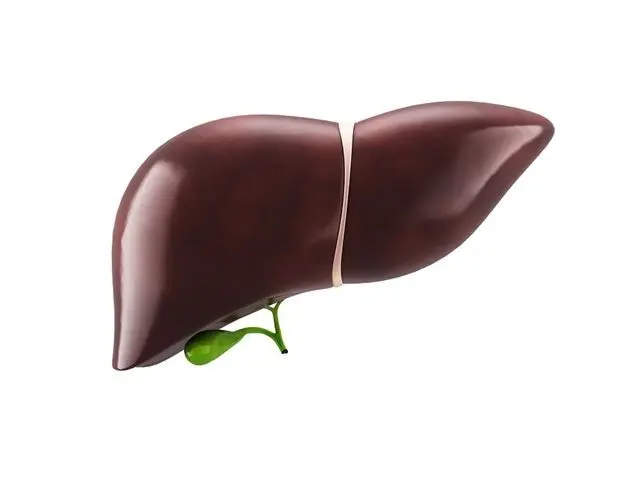Europe's Patchwork Approach to Biliary Atresia Screening: From Color Cards to AI-Powered Solutions
2 Sources
2 Sources
[1]
Europe's patchwork approach to biliary atresia screening revealed
Chinese Academy of SciencesJul 1 2025 Published (DOI: 10.1136/wjps-2025-001026) on May 12, 2025, in World Journal of Pediatric Surgery, researchers from Geneva University Hospitals conducted the first scoping review of BA screening efforts across Europe. Their findings reveal a patchwork landscape: while countries like Switzerland, France, and Germany have introduced national SCC programs, most others lag behind or rely solely on localized pilots. This review highlights both systemic inertia and promising technologies -- such as AI-enabled apps -- that could bridge the gap in diagnosis and care, advocating for Europe to rethink and revitalize its approach to neonatal liver screening. This review assessed a wide range of data -- from published literatures to digital health tools -- on three major screening strategies: SCC, serum bilirubin testing, and biochemical profiling. Switzerland was the first country in Europe to launch a national SCC program, reducing the median age of surgery and eventually integrating the card into newborn health booklets. France followed through a parent-led advocacy campaign, while Germany only recently mandated SCC use nationwide. Elsewhere, efforts remain sporadic. Studies consistently show SCC's effectiveness improves dramatically when accompanied by clear referral guidance. Yet many pediatricians still resist its use, citing workload and psychological concerns. Meanwhile, the UK has led research on bilirubin screening, showing exceptional accuracy -- but has failed to move from research to policy due to logistical and financial barriers. Recent breakthroughs such as Italy's PopòApp and Germany's AI-powered stool image analysis show strong potential for improving accuracy and scalability. Together, these insights suggest that Europe has both the tools and the knowledge -- but not yet the will -- to implement widespread BA screening. Europe has no shortage of expertise, evidence, or technology -- what's missing is coordinated action. We've seen how something as simple as a color card can shift outcomes dramatically. Add digital tools and clinical buy-in, and we could revolutionize early diagnosis for thousands of infants. But time is of the essence -- each delay costs lives." Professor Barbara E. Wildhaber, senior author of the study A unified European strategy could turn the tide against BA-related infant mortality. Combining SCC with digital apps and AI can provide low-cost, high-reach solutions for families and frontline clinicians. Serum bilirubin testing, though more expensive, captures a wider spectrum of liver diseases and could complement SCC-based programs. Countries may benefit most from hybrid screening models tailored to their healthcare infrastructure. Crucially, any technical rollout must be paired with education, awareness, and strong political advocacy. With the right alignment of tools, policy, and public will, Europe can catch up -- and catch the infants who need help most. Chinese Academy of Sciences Journal reference: Wildhaber, B. E., & Calinescu, A. M. (2025). European strategies in the screening of biliary atresia: a scoping review. World Journal of Pediatric Surgery. doi.org/10.1136/wjps-2025-001026.
[2]
From Cards to Code: Reviving Europe's Battle Against Biliary Atresia | Newswise
Newswise -- Published (DOI: 10.1136/wjps-2025-001026) on May 12, 2025, in World Journal of Pediatric Surgery, researchers from Geneva University Hospitals conducted the first scoping review of BA screening efforts across Europe. Their findings reveal a patchwork landscape: while countries like Switzerland, France, and Germany have introduced national SCC programs, most others lag behind or rely solely on localized pilots. This review highlights both systemic inertia and promising technologies -- such as AI-enabled apps -- that could bridge the gap in diagnosis and care, advocating for Europe to rethink and revitalize its approach to neonatal liver screening. This review assessed a wide range of data -- from published literatures to digital health tools -- on three major screening strategies: SCC, serum bilirubin testing, and biochemical profiling. Switzerland was the first country in Europe to launch a national SCC program, reducing the median age of surgery and eventually integrating the card into newborn health booklets. France followed through a parent-led advocacy campaign, while Germany only recently mandated SCC use nationwide. Elsewhere, efforts remain sporadic. Studies consistently show SCC's effectiveness improves dramatically when accompanied by clear referral guidance. Yet many pediatricians still resist its use, citing workload and psychological concerns. Meanwhile, the UK has led research on bilirubin screening, showing exceptional accuracy -- but has failed to move from research to policy due to logistical and financial barriers. Recent breakthroughs such as Italy's PopòApp and Germany's AI-powered stool image analysis show strong potential for improving accuracy and scalability. Together, these insights suggest that Europe has both the tools and the knowledge -- but not yet the will -- to implement widespread BA screening. "Europe has no shortage of expertise, evidence, or technology -- what's missing is coordinated action," said Professor Barbara E. Wildhaber, senior author of this study. "We've seen how something as simple as a color card can shift outcomes dramatically. Add digital tools and clinical buy-in, and we could revolutionize early diagnosis for thousands of infants. But time is of the essence -- each delay costs lives." A unified European strategy could turn the tide against BA-related infant mortality. Combining SCC with digital apps and AI can provide low-cost, high-reach solutions for families and frontline clinicians. Serum bilirubin testing, though more expensive, captures a wider spectrum of liver diseases and could complement SCC-based programs. Countries may benefit most from hybrid screening models tailored to their healthcare infrastructure. Crucially, any technical rollout must be paired with education, awareness, and strong political advocacy. With the right alignment of tools, policy, and public will, Europe can catch up -- and catch the infants who need help most. World Journal of Pediatric Surgery is an international open access journal publishing original researches, reviews, perspectives and short reports on all aspects of pediatric surgery. The journal is particularly interested in interdisciplinary studies including, but not limited to, minimally invasive surgery, robotic surgery, precision surgery, artificial intelligence, new materials and medical instruments.
Share
Share
Copy Link
A scoping review reveals disparities in biliary atresia screening across Europe, highlighting the potential of AI and digital tools to improve early diagnosis and outcomes for infants.
Europe's Fragmented Approach to Biliary Atresia Screening
A groundbreaking scoping review published in the World Journal of Pediatric Surgery on May 12, 2025, has shed light on the disparate approaches to biliary atresia (BA) screening across Europe
1
. Researchers from Geneva University Hospitals conducted the first comprehensive assessment of BA screening efforts, revealing a patchwork landscape that highlights both systemic challenges and promising technological advancements.Current Screening Strategies

Source: Newswise
The review examined three major screening strategies: stool color cards (SCC), serum bilirubin testing, and biochemical profiling. Switzerland emerged as a pioneer, being the first European country to implement a national SCC program, which successfully reduced the median age of surgery for BA patients
1
. France and Germany have since followed suit, with Germany recently mandating nationwide SCC use.However, the adoption of screening methods remains sporadic in many other European countries. The effectiveness of SCC programs is significantly enhanced when accompanied by clear referral guidelines, yet resistance persists among some pediatricians due to concerns about workload and psychological impact on parents
2
.Technological Advancements and AI Integration
Recent technological breakthroughs are showing strong potential for improving the accuracy and scalability of BA screening:
- Italy's PopòApp: A digital application designed to assist in stool color assessment
1
. - Germany's AI-powered stool image analysis: Utilizing artificial intelligence to enhance diagnostic accuracy
1
.
These innovations represent a shift from traditional methods to more sophisticated, AI-driven approaches that could revolutionize early diagnosis for thousands of infants.

Source: News-Medical
Related Stories
Challenges and Opportunities
Despite the availability of expertise, evidence, and technology, Europe faces significant challenges in implementing widespread BA screening. The United Kingdom, for instance, has conducted extensive research on bilirubin screening, demonstrating exceptional accuracy. However, the transition from research to policy has been hindered by logistical and financial barriers
2
.Professor Barbara E. Wildhaber, senior author of the study, emphasizes the urgency of the situation: "Europe has no shortage of expertise, evidence, or technology -- what's missing is coordinated action. We've seen how something as simple as a color card can shift outcomes dramatically. Add digital tools and clinical buy-in, and we could revolutionize early diagnosis for thousands of infants. But time is of the essence -- each delay costs lives."
1
The Path Forward
The review advocates for a unified European strategy to combat BA-related infant mortality. Key recommendations include:
- Combining SCC with digital apps and AI to provide low-cost, high-reach solutions.
- Integrating serum bilirubin testing to capture a wider spectrum of liver diseases.
- Developing hybrid screening models tailored to each country's healthcare infrastructure.
- Pairing technical rollouts with education, awareness campaigns, and strong political advocacy
2
.
By aligning tools, policy, and public will, Europe has the potential to significantly improve early diagnosis and treatment of biliary atresia, ultimately saving infant lives and reducing long-term health complications.
References
Summarized by
Navi
Related Stories
Europe's Uneven Progress in Biliary Atresia Screening: AI and Digital Tools Offer Hope
20 Jun 2025•Health

AI and Advanced Technology Revolutionize Diagnosis of Rare Diseases and Genetic Conditions
01 Aug 2024

Innovative MRI Technologies Revolutionize Pediatric Brain Imaging
31 Jul 2025•Science and Research

Recent Highlights
1
ByteDance's Seedance 2.0 AI video generator triggers copyright infringement battle with Hollywood
Policy and Regulation

2
Demis Hassabis predicts AGI in 5-8 years, sees new golden era transforming medicine and science
Technology

3
Nvidia and Meta forge massive chip deal as computing power demands reshape AI infrastructure
Technology





